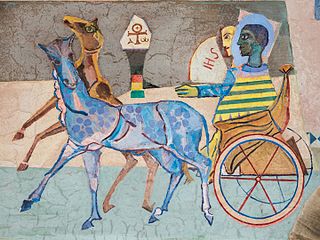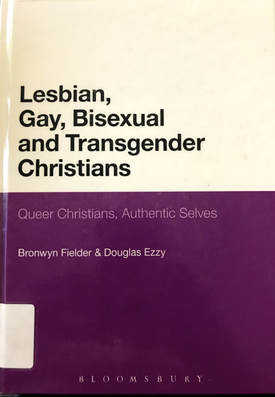|
As both a transgender woman and an experienced Anglican priest, it is highly disappointing to hear of the recent resolution of the Anglican Synod of Tasmania about what it calls ‘Biological Sex’. This betrays all the faults of what was a very late ‘motion without notice’: being ill-considered, under-informed and divisive, especially in its lack of attention to Anglican and other transgender people’s own well-substantiated experiences of faith and identity. For both Tasmania and the Anglican Communion are blessed with many wonderful transgender people who continue to enrich our communities and bring new life to others. What a difference it then makes when we are listened to and engaged constructively. For my own experience is that, in affirming rather than denying our authentic God-given (not human labelled) gender, transgender people are indeed so much more fully incarnate, at peace and flourishing in our skins, biology and divine purpose. Denying this not only helps maintain unnecessary suffering but restricts the love and joy we have to share within the Church and wider world. After all, St Paul (in 1 Corinthians 12) encouraged the Church, as the Body of Christ, to value its members that are weaker and shamed. This kind of action however feels more like being freshly beaten up and an attempt to cut off transgender members, our families and friends. That is not the message of God’s love that Christians have to offer the world.
The resolution also seems to reflect a recently constructed approach to the Bible which narrows God’s colourful and dynamic kaleidoscope of creation to simplistic black and white binary categories. This does not do justice to how mainstream Anglican theology has typically sought to value the rich and varied textures of the scriptures and the best of evolving human reason. Nor does it sit well with increasingly trans affirming developments in many Anglican dioceses, and other Christian congregations, schools, and agencies across Australia. I hope therefore that Anglican leaders in Tasmania will think again and not encourage their parishes, schools, and other agencies to take such an unhelpful path. The same Synod passed other resolutions making a continuing welcome commitment to addressing environmental challenges and supporting people with disabilities. These are just two of many ways in which Tasmanian Anglicans contribute positively to their communities. What a shame transgender people are not yet regarded as worthy of similar full respect and engagement. For neither trans people nor people of faith benefit from perpetuating today’s unnecessary culture wars, especially those of us who are both. Human beings have genuine differences but, as St Paul also put it, we are called to be one in Christ, in whom ‘there is no longer male and female’. We can be, and do, so much more together. The Revd Dr Josephine Inkpin was ordained in the Church of England in 1986 and has served in many capacities in Anglican dioceses in England and, since 2001, in Australia, as well as an officer of the National Council of Churches in Australia for several years. She is an associate lecturer in the University of Divinity, a member of the global network of Trans and Non-Binary Clergy of the Anglican Communion, and the current Minister of Pitt Street Uniting Church in Sydney.
1 Comment
 I wonder how many sermons you’ve heard about eunuchs? Not many I would guess. Yet is actually quite extraordinary how many eunuchs are mentioned in the Bible. Perhaps the story from Acts of the Apostles (chapter 8 verses 26-end) might be one we do recognise. Many others however are simply passed over. Jesus for example spoke positively about eunuchs and his words are recorded in Matthew chapter 19. Very little is ever said about that and some people do not even know those verses are there. Even the story we hear today is also usually interpreted without too much attention to the specifics of the person baptised. This is all very sad. For it misses out some very powerful messages for us, for the Church, and for the world, not least those, like the Ethiopian eunuch, who are quite different kinds of people to many expected norms. It is one of those very many ‘queer’ stories in the Bible which speak of a very ‘queer’ kind of God and mission…  How often, I wonder, has a Lesbian, Gay, Bisexual, or Transgender Christian been attacked as a religious, moral, or logical 'impossibility', 'a contradiction in terms', a living oxymoron? Pretence and deceit are certainly themes which hover around gender diverse people and discussion of our lives and sense of being. Spiritually speaking, such features are typically regarded as unhealthy. Whilst, for instance, there are some positive stories of trickery in the Bible (notably in the case of the patriarch Jacob), these are usually the sign of a wayward, scheming, selfish or misdirected person. Later transitioning religious people are thus frequently caught in certain traps as they become the more 'authentic' selves God calls them to be. On the one hand, we may be called people of pretence and deceit by those who refuse to accept the realities of our identity. On the other hand, we may be attacked for hitherto seemingly living lives that were not true or misleading. At the very same time, we may also be dealing with our own shame, guilt, and confusions about what we may have 'pretended' to be. Yet, as we are reminded in both the powerful scriptural text of 2 Corinthians 6, and a just published book Lesbian, Gay, Bisexual and Transgender Christians: Queer Christians, Authentic Selves (by Bronwyn Fielder & Douglas Ezzy, Bloomsbury Press 2018),, we may be 'treated as impostors but are true' (2 Cor 6.8b)... |
AuthorThe Revd Dr Jo Inkpin: Archives
March 2024
Categories
All
|
 RSS Feed
RSS Feed